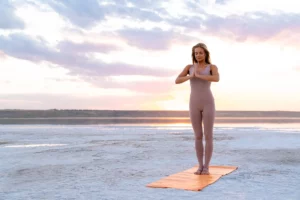“If I had a world of my own, everything would be nonsense. Nothing would be what it is, because everything would be what it isn’t. And contrary wise, what is, it wouldn’t be. And what it wouldn’t be, it would. You see?” Alice in Wonderland
I ran a leadership retreat for 12 participants and at the end of the programme participants were asked to rate a variety of key things related to the successful execution of the retreat from the quality of accommodation and food, administration of the programme, programme content, to the ability of the Facilitator. Each was written as a positive statement and participants rated according to the extent they agreed or disagreed with the statement. When it came to rating the skill of the facilitator (myself) 11 participants strongly agreed while one participant disagreed…. The statement read ‘I found the facilitator skillful’.
My mind flew back to this quote
“You know how, when during your performance appraisal your manager tells you the 37 things that you are doing awesome, and then the one thing they think is an ‘opportunity for growth’, and all you can think about is the ‘opportunity for growth?’ ” Brene Brown.
I always tell people that they are their best subject matter expert. You will know more about yourself that anyone – if you are honest, of course. I do know what I am and what I am not, and an-unskilled facilitator I am not (yet I am, according to one!). When it comes to asking for feedback you can’t cherry pick as what’s the point but it doesn’t mean that you have to buy into what others experience even if it is their “lived experience”….yes the ‘lived experience argument’. Basically what Lewis Carroll described in jest! How someone ‘felt’ at a given moment in time and it brooks no argument or contradiction – it’s a huge trigger for me, even more than the “opportunity for growth”.
I was disagreeing with my daughter about her interpretation of an experience we both had to which I kept refuting how she had viewed it and eventually in frustration she blurted out that she owned the experience, not me, as in her opinion, her interpretation of what happened validates the perception. That triggers me because it just smacks of pandering… just because you experience it one way doesn’t make it right and yet people want to use this like a ‘get out of jail free’ card, as if life is like a game of Monopoly: As if “lived experience” trumps reality or critical thinking. By citing “lived experience,” people make claims of expertise about their own lives that are not subject to dispute. In this context, critical thinking – open-minded consideration of whether the person’s narrative fits what actually happened and whether that narrative is a productive way of thinking about it – is deemed irrelevant. Feelings trump facts, end of.
The problem with “lived experience” is that it has become a claim that what the person is aware of is all there is, with no allowance for the way that narrative may be self-serving or just plain wrong. I get it that one’s perception influences one’s life and that will influence how you react but “pandering” to how you want to view the word as if the world can be panel-beaten to suit what you want it to be, or the way you think it should be, just infuriates me.
The essence of pandering, a phrase which came from ‘The Coddling of the American Mind’ , is the notion that people don’t have to be subjected to ideas that they don’t like. A good example is students who insist that the classroom should be a “safe” space, where “safe” means a panic room where disruptive ideas are kept out. They insist on being complimented for already knowing, and they treat instruction as an attempt to humiliate them. They accuse professors of “gaslighting” them if they say things they don’t understand, because they feel discomfited by new ideas, and discomfort is understood as an assault on their well-being.
Do we have the right to question people’s lived experience? I say yes, in fact it’s absolutely critical because if you don’t, then the person just gets all messed up and they mess up everyone else. Think about the man in the elevator who is accused of harassment because he made the woman feel uncomfortable because of the way he looked at her, when in fact he dd nothing of the kind. Perceptions affect the quality of your experience of life. So, if you perceive things in a positive light, you will experience a happier existence – like a sort of Pollyanna effect. Perception also informs your relationships. If you constantly perceive people in a certain way – for example being against you or out get you or looking at you ‘funny’ in an elevator – you will predictably react in a defensive, negative, or reactive way, leading to you needlessly experiencing unhappiness.
So, to the participant who fed-back that I was unskilled, I want to sit them down, ask them to justify their score, and then present them with all the evidence to prove that they are wrong (and of course I am right). But that is not the point and I know that. While I would like to live in a world where people are accountable – and with accountability there comes fairness – it is not up to me to impose this on others. In the words of Dan Migues “All humans are (self-portrait) artists, and they have the right to create theirs, whatever way they want”, even if it is all stuff and nonsense!
And that takes us right back to Alice again
`No, no!’ said the Queen. `Sentence first–verdict afterwards.’
`Stuff and nonsense!’ said Alice loudly. `The idea of having the sentence first!’
`Hold your tongue!’ said the Queen, turning purple.
Spoken like a true ‘lived experience’ devotee!







